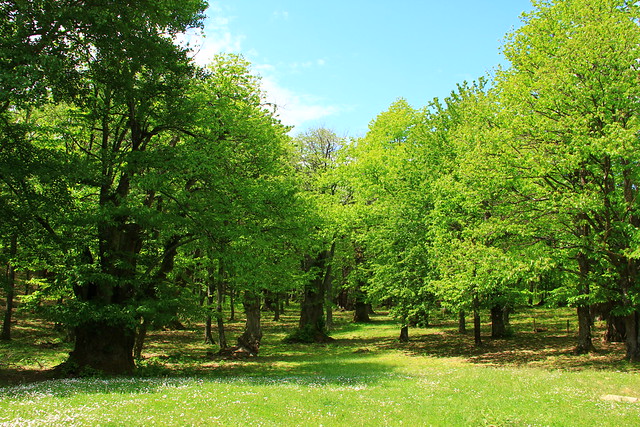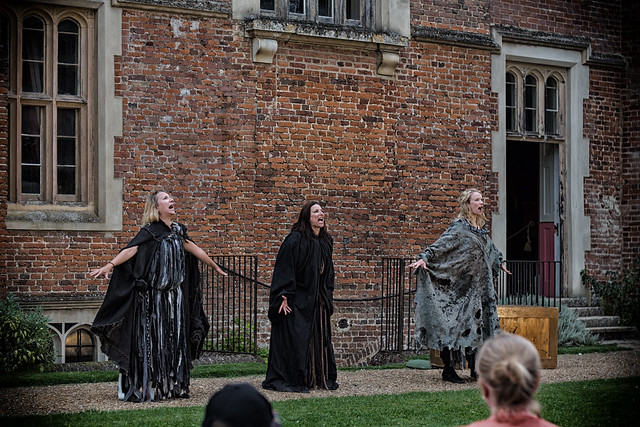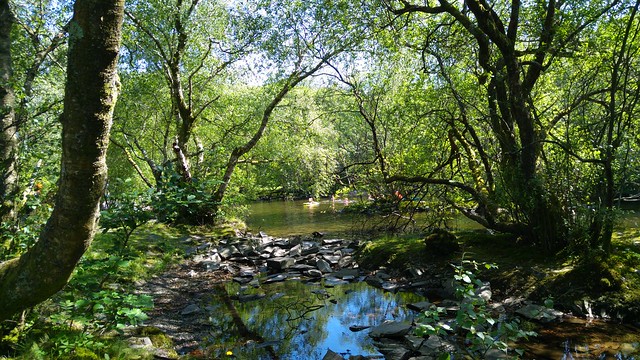Podcast: Play in new window | Download
In this episode we’re looking at Celtic words for great and big and related things.
A Proto-Celtic word for big and great is *māros, which comes from Proto-Indo-European *moh₁ros (great), or mērós (great, considerable, sizeable, impressive), both of which come from *meh₁- (to measure) [source].
Descendents in the modern Celtic languages include:
- mór [mˠoːɾˠ] = big, great, large in Irish.
- mòr [moːr] = big, great, large, grand in Scottish Gaelic
- mooar [muːr] = big, great, grand, heavy, tall in Manx
- mawr [mau̯r] = large, big; fully grown in Welsh
- meur [mø:r] = great, grand, large, substantial in Cornish
- meur [møʁ] = big, many in Breton
Words from the same Proto-Celtic root, via Byzantine Greek μάραον (máraon – sweet chestnut), possibly include marrone (brown, chestnut) in Italian, marron (chestnut, brown) in French, and Morone (sweet chestnut) in German [source].
How did a word meaning big in Proto-Celtic come to refer to chestnuts in other languages? Possibly because the edible seeds (chestnuts) of the sweet chestnut tree (Castanea sativa) are relatively large.
Words from the same PIE roots include immense, meal, measure, meter / metre, metronome and probably moon and month in English, vermaren (to make famous) and maal (meal, time, turn) in Dutch, and mærð (flattery, praise) in Icelandic [source].
You can find more details of words for Big, Large & Great and related things on the Celtiadur blog. I also write about words, etymology and other language-related topics on the Omniglot Blog.
By the way, you can find a longer version of the new theme tune, Dancing on Custard, on: SoundCloud.
Radio Omniglot podcasts are brought to you in association with Blubrry Podcast Hosting, a great place to host your podcasts. Get your first month free with the promo code omniglot.







